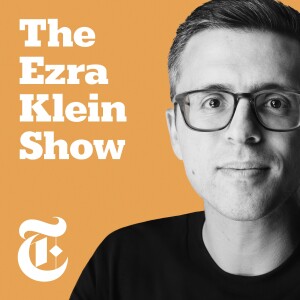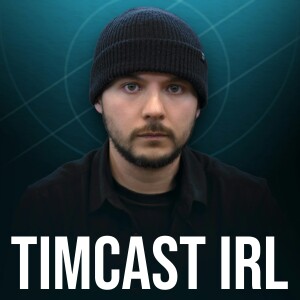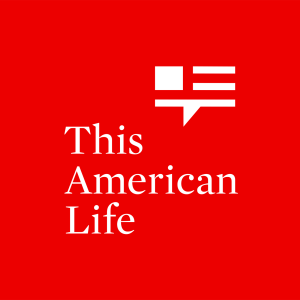

Episode List
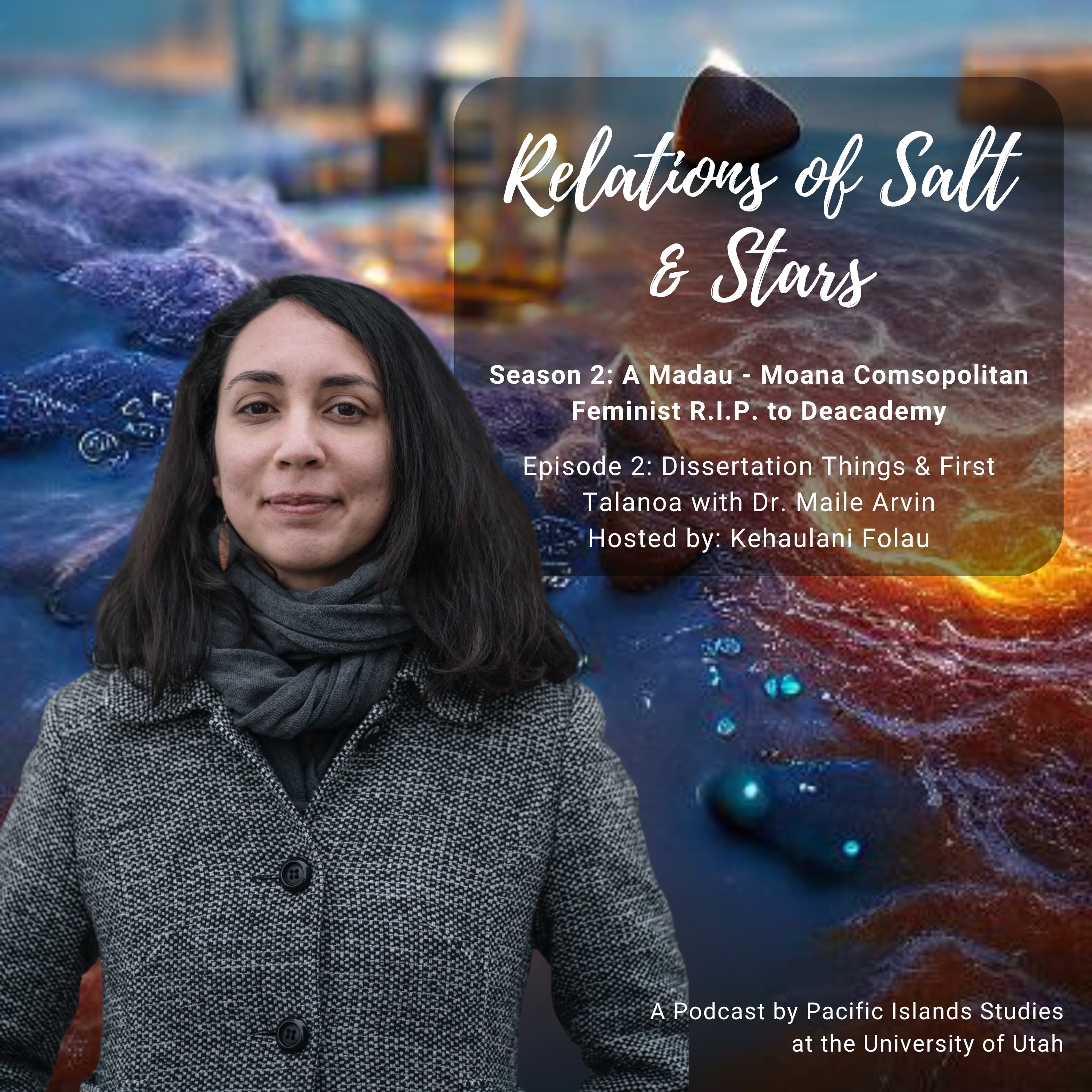
Dissertation Things & First Talanoa with Dr. Maile Arvin
In this episode of Relations of Salt and Stars, Kehaulani Folau discusses her theoretical framework, methodology, and highlights of her first talanoa with Dr. Maile Arvin! Kehau highlights Dr. Arvin’s formidable moments of her educational journey, and shares her reflections of her talanoa with Dr. Arvin. References Arvin, M., Tuck, E., & Morrill, A. (2020). Decolonizing feminism: Challenging connections between settler colonialism and heteropatriarchy. In Feminist Theory Reader (pp. 169-180). Routledge. Andreotti, V. (2021). Hospicing modernity: Facing humanity’s wrongs and the implications for social activism. Berkeley: North Atlantic Books. Dr. Hi‘ilei Hobart Book Celebration, March 2023. Cooling the Tropics book discussion with author Dr. Hi'ilei Hobart. https://www.youtube.com/watch?v=D0iC62KxcJ8&t=2406s Grande, S. (2021). Pedagogies of Mourning and Morning [conference keynote address]. Association for the Study of Higher Education. Grande, S. (2018). Refusing the university. In Toward what justice? (pp. 47-65). Routledge. Kaʻili, T. O. (2017). Marking indigeneity: The Tongan art of sociospatial relations. University of Arizona Press. Lopesi, L. (2021). Moana Cosmopolitan Imaginaries: Toward an Emerging Theory of Moana Art (Doctoral dissertation, Auckland University of Technology). Nā Lei Poina ‘Ole (Beloved Children Never Forgotten) at https://naleipoinaole.com/blog Tecun, A. (2019). Rootz Vaka Transits: Traversing seas of urban diasporic indigeneity by collapsing time and space with the songs and stories of the kava canoe (Doctoral dissertation, The University of Auckland) Trask, H. K. (1999). From a native daughter: Colonialism and sovereignty in Hawaii (Revised edition). University of Hawaii Press. Vaughn, K. (2022). Birthing Educational Pathways: Pacific Feminisms and the Ethics of Kuleana and Kinship. Amerasia Journal, 48(2), 145-157. Wilder, C. S. (2013). Ebony and ivy: Race, slavery, and the troubled history of America's universities. Bloomsbury Publishing USA.
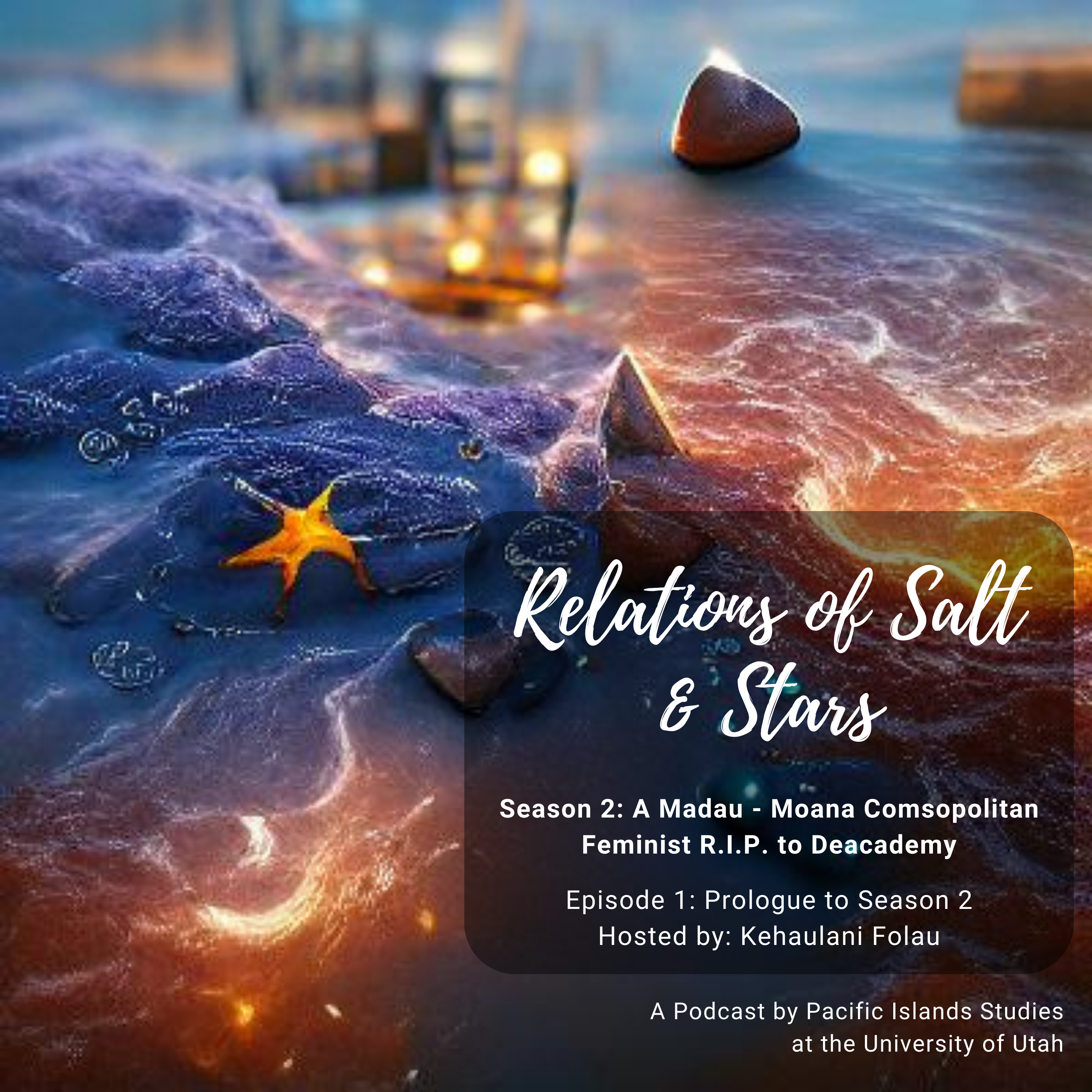
Prologue to Season 2: A Madau-Moana Cosmopolitan Feminist R.I.P. to Deacademy
Show Notes In this season of Relations of Salt and Stars, Kehau Folau highlights different parts of her dissertation journey. In this episode, she introduces herself, this season’s theme, which is also their dissertation project- A Madau-Moana Cosmopolitan Feminist R.I.P. to Deacademy, and wraps up with their shameless call for participants to join her research study. Find out more about Pacific Island Studies at the University of Utah by visiting our website at: https://transform.utah.edu/pi-studies/. You can also follow us on Facebook at Utah Pacific Islands Studies: https://www.facebook.com/uofustudies. We are also on Instagram @uofupistudies: https://www.instagram.com/uofupistudies References: Relations to Start and Stars | Prologue to Season 1: Planting Good Relations: https://relations-of-salt-and-stars.castos.com/episodes/prologue-to-season-1-planting-good-relations Meyer, M. A. (2013). Holographic epistemology: Native common sense. China Media Research, 9(2), 94-101. Tecun, A. (2022). Knew world undercurrents. In A. Tecun, L. Lopesi, and A. Sankar (Eds.), Towards a Grammar of Race in Aotearoa New Zealand (pp. 76-89). Bridget Williams Books; Wellington, New Zealand. Lopesi, L. (2021). Moana Cosmopolitan Imaginaries: Toward an Emerging Theory of Moana Art. [Doctoral dissertation, Auckland University of Technology]. More information about Kehau Folau’s research project visit: https://forms.gle/7RmgvrfRGSgaKiiR7 or email her at kehaulani.folau@utah.edu.
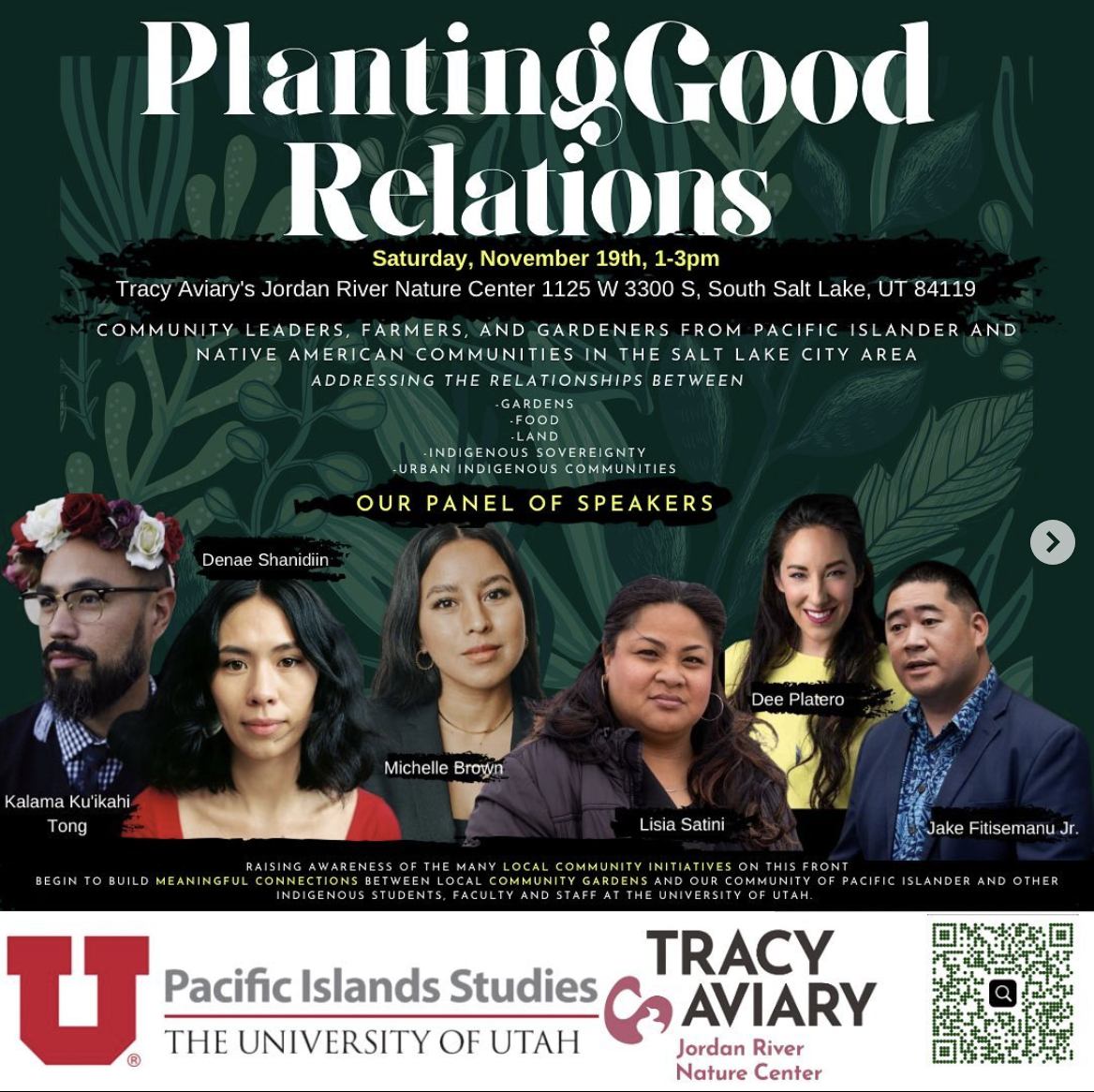
What Our Gardens Teach Us (Part 2)
This is Part 2 of our episode about gardens: what they teach us, the medicine they offer, and the connections they allow us to make between the lands we live on and our homelands. Maile shares some highlights of our November event, Planting Good Relations, which featured a panel discussion with a number of Native American and Pacific Islander leaders who steward community gardens here in the Salt Lake City area. She also shares her own story about gardening, Hawaiian language, and parenting. As we said in Part 1, this land in Salt Lake City is Ute, Goshute, Paiute, and Shoshone land. None of us are of these peoples; we all have homelands elsewhere. As we talk and think about gardening this land, we want to come into better relation with these peoples and this place. As you’ll hear, many of our panelists are doing this work by offering medicine grown in these gardens to the community and by creating space for Indigenous youth and families to find healing or to just be. Check out Part 1 of this episode published back on our podcast in December 2022. You are also able to watch a video of this panel, or listen to the full audio of the panel on our YouTube page, the Pasifika Archive, with the handle @thepasifikaarchive2650. Please check out the full bios and links to our panelists’ organizations below to learn more about their work and how you can support it. Denae Shanidiin, Diné and Korean artist and consultant, is asdzáán born to the Diné (Navajo) Nation. She is Honágháahnii, One-Walks-Around Clan, born to the Korean race on her Father’s side. Kinłichíi’nii, the Red House People is her Maternal Grandfather’s Clan and the Bilagáana, White People, is her Paternal Grandfather’s Clan.Shanidiin’s work reveals the importance of Indigenous spirituality and sovereignty. Her work brings awareness to many contemporary First Nation issues including Missing and Murdered Indigenous People, land body violence, and restoring beauty and balance through reclaiming our Indigenous lifeways. Shanidiin in partnership with other relatives founded the Carry The Water Garden: an Indigenous Healing Garden in the Salt Lake Valley. Dee Platero is a member of the Navajo Nation born for Edge of the Water clan. She is a Technical Consultant and finds opportunities through work and play to help Indigenous led efforts. She enjoys staying active and is a continual learner. Dee looks forward to each unique creative space Pandos facilitates and is grateful for the opportunitiy to elevate Pandos voices. Michelle Brown is a Dinè activist born into “The Water Flows Together” Clan. She is committed to serve her community and bring attention to everyday and historic issues that indigenous peoples face with emphasis on Murdered and Missing Indigenous Peoples. She currently serves as Chair to MMIW+ Utah and relies heavily on her belief that learning is ever evolving. Lisia “Sia” Satini, a Community Health Workers Director for the Utah Pacific Islander Health Coalition (UPIHC) born in San Mateo, California to Sesikuana Finau (Ta’anea, Vava’u) and Mafile’o Tafuna (Nuku’alofa, Tongatapu). She serves as an Executive Assistant for Jayhawks and is serving her second term with the Salt Lake City Resident Food Equity Advisors. She partnered with the Utah Food Bank, to offer healthy food customary to the Pacific Islander diet for Pacific Islander food distribution events. She has served on the WIC (Women, Infants, Children) Advisory Board for several years. Lisia and her husband, John have 5 children together residing in Fairpark, Utah. During the pandemic, UPIHC offered regular Community workshops collaborating with Healthy Roots. Healthy Roots has donated community garden space and plants to Jayhawks, an organization dedicated to the diverse west side of Salt Lake City. Jayhawks offers the Hawk’s Nest Community Shed, a resource in collaboration with Salt Lake City offering access to rent tools at “No Cost” for residents to take care of their nutritional needs and beautify their outdoor space by learning new skills or redeveloping old skills. Jacob “Jake” Fitisemanu Jr., MPH, was born in New Zealand/Aotearoa to Karen Dang (Kaimukī, Oʻahu, Hawaiʻi) and Jacob Fitisemanu Sr. (Falefā, ʻUpolu, Sāmoa) and raised in Hawaiʻi and Utah. Jake holds a master’s degree in Public Health from Westminster College and works for Intermountain Healthcare as a Community Health Program Manager. He was appointed by President Obama to the President’s Advisory Commission on Asian Americans & Pacific Islanders in 2015 and also served on the US Census National Advisory Committee for two terms. Jake co-founded the Utah Pacific Islander Health Coalition (which he has chaired since 2011), serves on the Huntsman Cancer Institute Community Advisory Board, and teaches community health dynamics as an associate instructor at the University of Utah. He lives with his wife and two daughters in West Valley City where he co-founded the Healthy West Valley Initiative and was recently re-elected as a member of the City Council. Healthy Roots: Cultivating a Culture of Wellness is a program that was initiated in 2015 as a small experiment to attempt to grow traditional Pacific Islander food crops in Salt Lake City, Utah. The objective of the program is to build our community’s capacity to supplement daily diet with added nutrition through fresh vegetables, including traditional produce that is familiar to Pacific Islander palates. Over the years, this program has piloted gardening efforts in bothcentralized, community gardens settings and backyard/home gardens. Margarita’s Mural: A memorial space in Fairpark, her childhood neighborhood for communities to gather, and for families and friends to remember the community advocate she was. Her mural was painted by Tongan/Fijian artist Bill Louis; beneath the mural is a raised garden the Holladay Community Garden and family members joined efforts building with various flowers planted by community members and tropical plants by Healthy Roots. 6 months after her passing, community members planted and unveil the mural that sits near the Ogwoi Garden. A day of gathering to grieve and break bread together. Special thanks to our panelists, Denae Shaniidin, Michelle Brown, Dee Platero, Lisia Satini, and Jake Fitisemanu Jr. We are so grateful for all the wisdom, laughter, and medicine you shared with us. Thanks also to our hosts at the Tracy Aviary Jordan River Nature Center, CEO Tim Brown, co-directors Marissa Beckstrom and Daniel Hernandez, and other Nature Center staff. Our thanks also to Kēhaulani Vaughn, Pauline Fonua and Lorilie Pope for organizing this event with us. Finally, we thank our sponsors: the Mellon Foundation, the University of Utah’s School for Cultural and Social Transformation, and the University of Utah’s College of Humanities. Follow us on Instagram @uofupischolars.
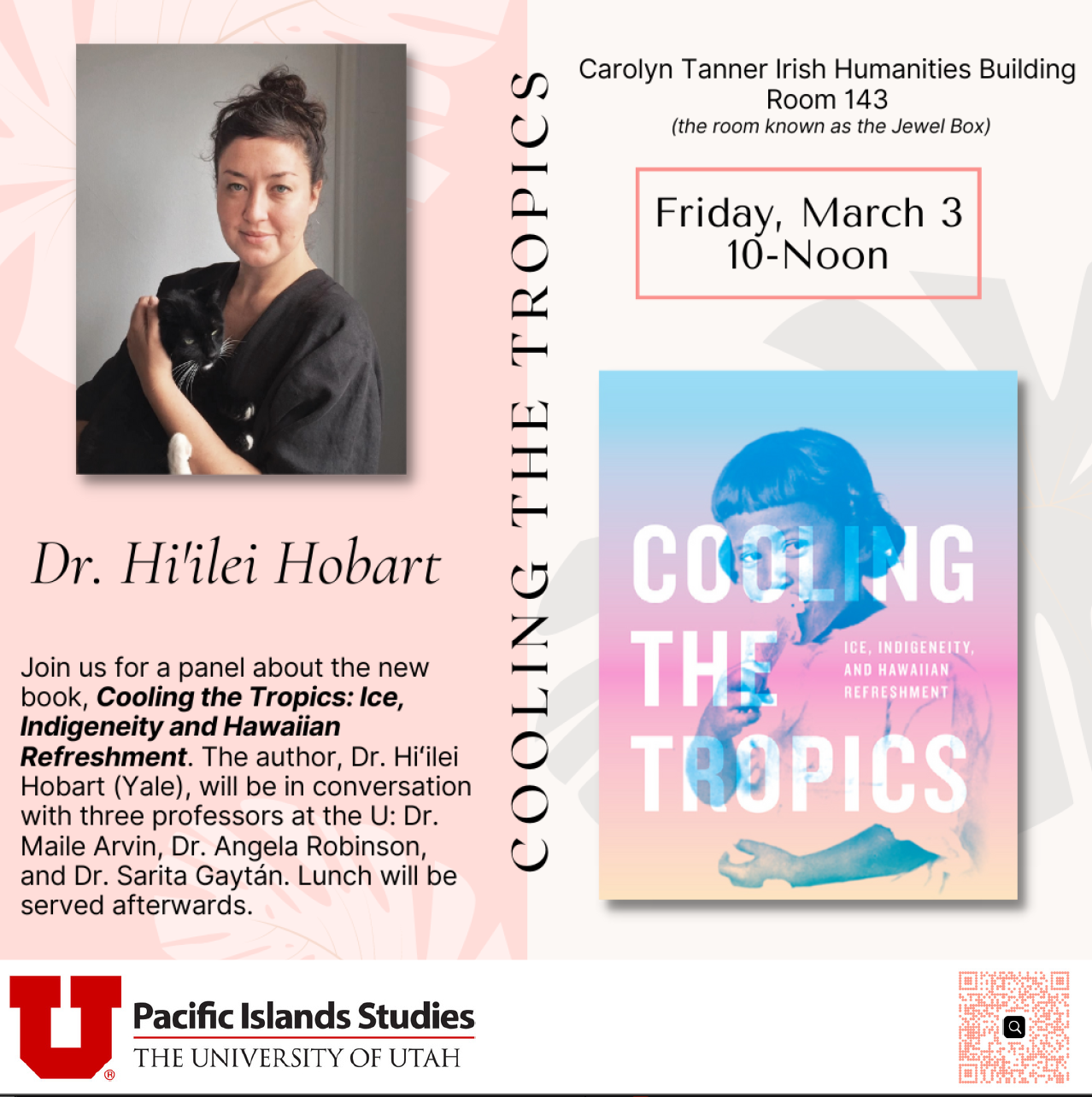
Histories of Ice, Ice Cream & Poi in Hawaiʻi: Interview with Dr. Hiʻilei Hobart
In this episode of Relations of Salt and Stars, we talk with our friend and colleague Dr. Hi’ilei Julia Kawehipua’akaha’opulani Hobart, in advance of her visiting us at the University of Utah. Save the date: Friday March 3rd, from 10 to 12, at the Carolyn Tanner Irish Humanities Center (Room 143, the Jewel Box), we will host Dr. Hobart to discuss her new book, Cooling the Tropics. Angela and I, along with another colleague of ours from Gender Studies, Dr. Sarita Gaytán, will be in discussion with Dr. Hobart about her book, and lunch will be served after! Please join us! Dr. Hobart, who is Kanaka Maoli, is an Assistant Professor of Native and Indigenous Studies at Yale University. An interdisciplinary scholar, she researches and teaches on issues of settler colonialism, environment, and Indigenous sovereignty. Her first book, Cooling the Tropics: Ice, Indigeneity, and Hawaiian Refreshment (Duke University Press, 2022) is a recipient of the press’s Scholars of Color First Book Award. Her articles have appeared in refereed journals such as NAIS, Media+Environment, Food, Culture, and Society, and The Journal of Transnational American Studies, among others. She is the co-editor of the special issue “Radical Care,” for Social Text (2020), and the editor of Foodways of Hawaiʻi (Routledge, 2018). She is currently working on a project about cultural memory, commemoration, and hauntings in Hawaii State Parks. Professor Hobart holds a PhD in Food Studies from New York University, an MA in Studies in the Decorative Arts, Design, and Culture from the Bard Graduate Center, and an MLS in Rare Books Librarianship and Archives Management from the Pratt Institute. She joined Yale in 2022 from the University of Texas at Austin, where she was an Assistant Professor of Anthropology. Special thanks to Dr. Hi’ilei Hobart for joining us on this episode, and visiting us in person next month. Thanks also to our sponsors: the Mellon Foundation, the University of Utah’s School for Cultural and Social Transformation, and the University of Utah’s College of Humanities.
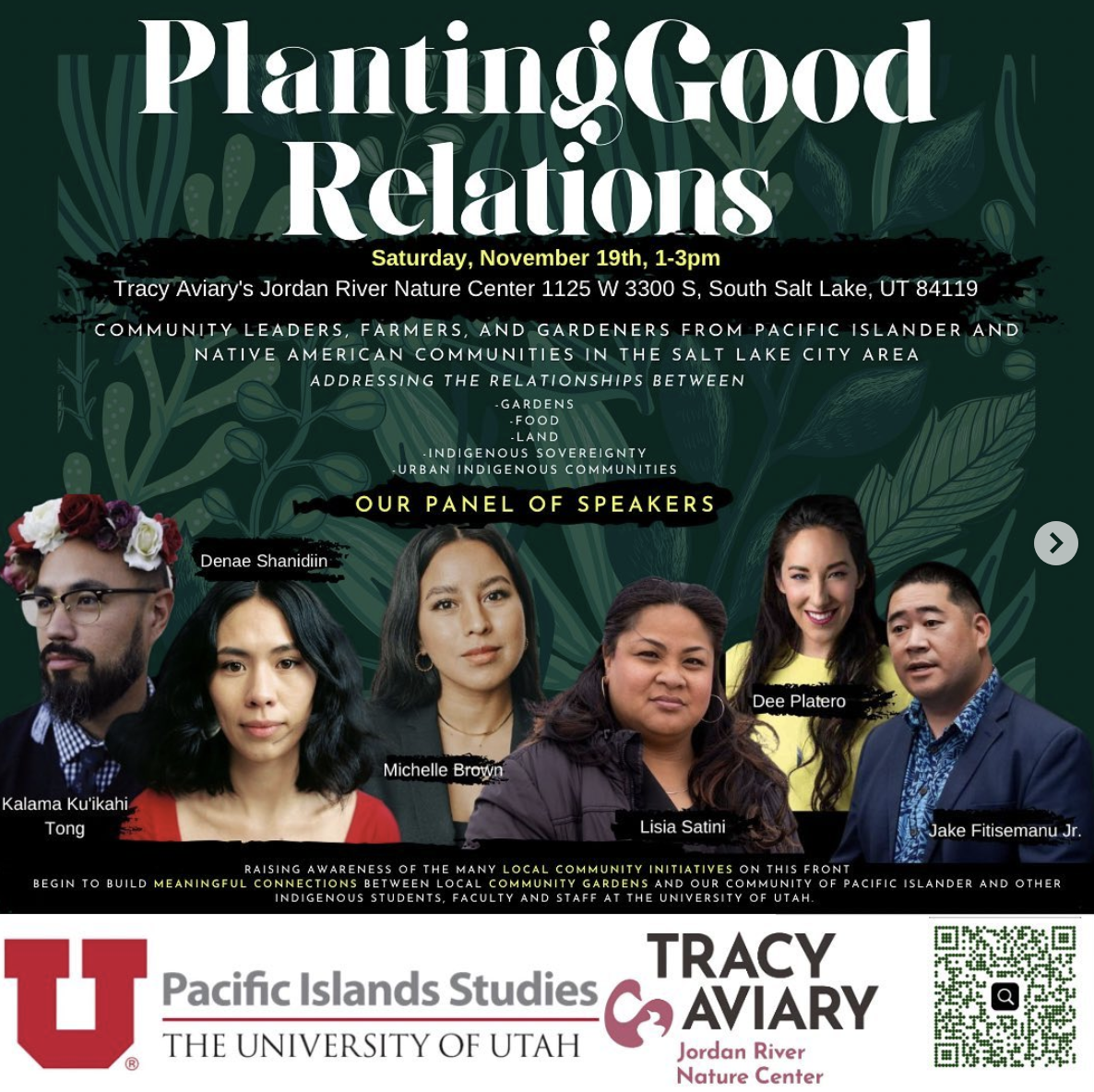
What Our Gardens Teach Us (Part 1)
This episode (which is part 1 of 2) explores stories of gardens: what they teach us, the medicine they offer, and the connections they allow us to make between the lands we live on and our homelands. Angela shares her own story of gardening, and we also share some highlights of our recent event, Planting Good Relations, which featured a panel discussion with a number of Native American and Pacific Islander leaders who steward community gardens here in the Salt Lake City area. Look for part 2 in January 2023! You are also able to watch a video of this panel, or listen to the full audio of the panel on our YouTube page, the Pasifika Archive, with the handle @thepasifikaarchive2650. Please check out the full bios and links to our panelists’ organizations below to learn more about their work and how you can support it. Denae Shanidiin, Diné and Korean artist and consultant, is asdzáán born to the Diné (Navajo) Nation. She is Honágháahnii, One-Walks-Around Clan, born to the Korean race on her Father’s side. Kinłichíi’nii, the Red House People is her Maternal Grandfather’s Clan and the Bilagáana, White People, is her Paternal Grandfather’s Clan.Shanidiin’s work reveals the importance of Indigenous spirituality and sovereignty. Her work brings awareness to many contemporary First Nation issues including Missing and Murdered Indigenous People, land body violence, and restoring beauty and balance through reclaiming our Indigenous lifeways. Shanidiin in partnership with other relatives founded the Carry The Water Garden: an Indigenous Healing Garden in the Salt Lake Valley. Dee Platero is a member of the Navajo Nation born for Edge of the Water clan. She is a Technical Consultant and finds opportunities through work and play to help Indigenous led efforts. She enjoys staying active and is a continual learner. Dee looks forward to each unique creative space Pandos facilitates and is grateful for the opportunitiy to elevate Pandos voices. Michelle Brown is a Dinè activist born into “The Water Flows Together” Clan. She is committed to serve her community and bring attention to everyday and historic issues that indigenous peoples face with emphasis on Murdered and Missing Indigenous Peoples. She currently serves as Chair to MMIW+ Utah and relies heavily on her belief that learning is ever evolving. Lisia “Sia” Satini, a Community Health Workers Director for the Utah Pacific Islander Health Coalition (UPIHC) born in San Mateo, California to Sesikuana Finau (Ta’anea, Vava’u) and Mafile’o Tafuna (Nuku’alofa, Tongatapu). She serves as an Executive Assistant for Jayhawks and is serving her second term with the Salt Lake City Resident Food Equity Advisors. She partnered with the Utah Food Bank, to offer healthy food customary to the Pacific Islander diet for Pacific Islander food distribution events. She has served on the WIC (Women, Infants, Children) Advisory Board for several years. Lisia and her husband, John have 5 children together residing in Fairpark, Utah. During the pandemic, UPIHC offered regular Community workshops collaborating with Healthy Roots. Healthy Roots has donated community garden space and plants to Jayhawks, an organization dedicated to the diverse west side of Salt Lake City. Jayhawks offers the Hawk’s Nest Community Shed, a resource in collaboration with Salt Lake City offering access to rent tools at “No Cost” for residents to take care of their nutritional needs and beautify their outdoor space by learning new skills or redeveloping old skills. Jacob “Jake” Fitisemanu Jr., MPH, was born in New Zealand/Aotearoa to Karen Dang (Kaimukī, Oʻahu, Hawaiʻi) and Jacob Fitisemanu Sr. (Falefā, ʻUpolu, Sāmoa) and raised in Hawaiʻi and Utah. Jake holds a master’s degree in Public Health from Westminster College and works for Intermountain Healthcare as a Community Health Program Manager. He was appointed by President Obama to the President’s Advisory Commission on Asian Americans & Pacific Islanders in 2015 and also served on the US Census National Advisory Committee for two terms. Jake co-founded the Utah Pacific Islander Health Coalition (which he has chaired since 2011), serves on the Huntsman Cancer Institute Community Advisory Board, and teaches community health dynamics as an associate instructor at the University of Utah. He lives with his wife and two daughters in West Valley City where he co-founded the Healthy West Valley Initiative and was recently re-elected as a member of the City Council. Healthy Roots: Cultivating a Culture of Wellness is a program that was initiated in 2015 as a small experiment to attempt to grow traditional Pacific Islander food crops in Salt Lake City, Utah. The objective of the program is to build our community’s capacity to supplement daily diet with added nutrition through fresh vegetables, including traditional produce that is familiar to Pacific Islander palates. Over the years, this program has piloted gardening efforts in bothcentralized, community gardens settings and backyard/home gardens. Margarita’s Mural: A memorial space in Fairpark, her childhood neighborhood for communities to gather, and for families and friends to remember the community advocate she was. Her mural was painted by Tongan/Fijian artist Bill Louis; beneath the mural is a raised garden the Holladay Community Garden and family members joined efforts building with various flowers planted by community members and tropical plants by Healthy Roots. 6 months after her passing, community members planted and unveil the mural that sits near the Ogwoi Garden. A day of gathering to grieve and break bread together. Special thanks to our panelists, Denae Shaniidin, Michelle Brown, Dee Platero, Lisia Satini, and Jake Fitisemanu Jr. We are so grateful for all the wisdom, laughter, and medicine you shared with us. Thanks also to our hosts at the Tracy Aviary Jordan River Nature Center, CEO Tim Brown, co-directors Marissa Beckstrom and Daniel Hernandez, and other Nature Center staff. Our thanks also to Kēhaulani Vaughn, Pauline Fonua and Lorilie Pope for organizing this event with us. Finally, we thank our sponsors: the Mellon Foundation, the University of Utah’s School for Cultural and Social Transformation, and the University of Utah’s College of Humanities. Follow us on Instagram @uofupasifikascholars.
Create Your Podcast In Minutes
- Full-featured podcast site
- Unlimited storage and bandwidth
- Comprehensive podcast stats
- Distribute to Apple Podcasts, Spotify, and more
- Make money with your podcast





